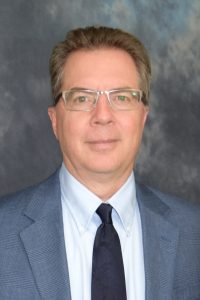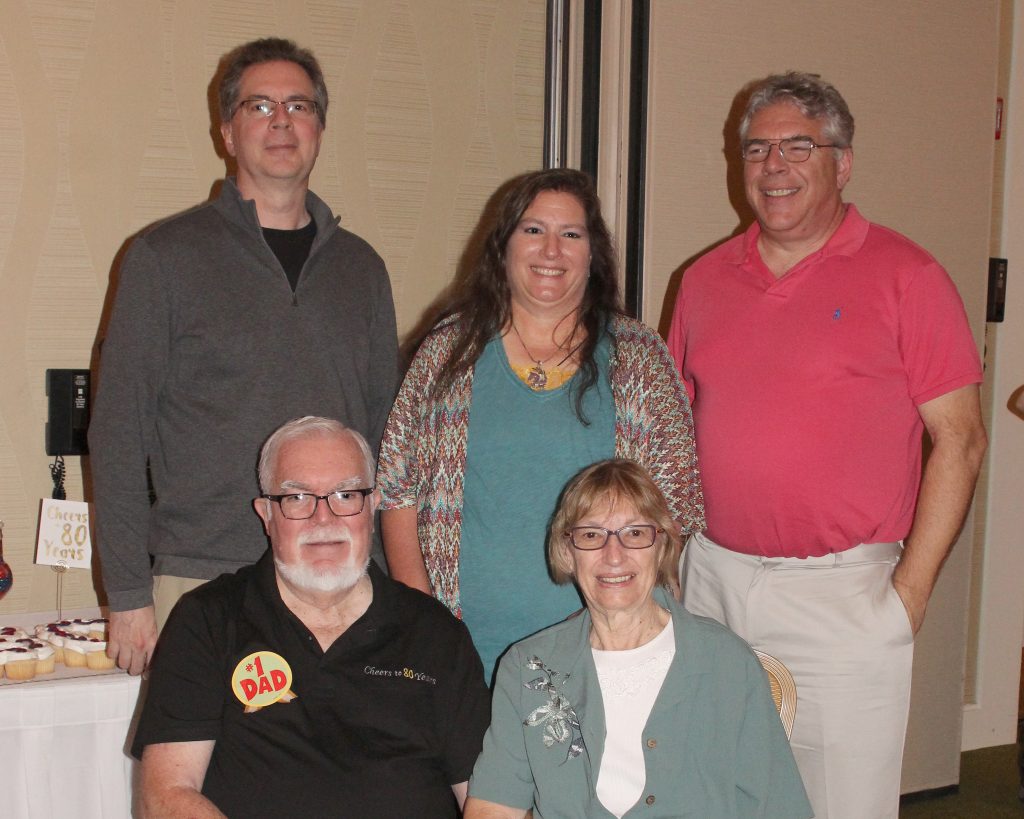Letter from Our Dean Ohmart, WMMC CFO

When my Dad was 64 years old and in his 38th year of Family Practice in a small Kansas town of about 3,000 people, he slipped on the ice and banged his head. Our “joke of the day” since Dad had been the only medical doctor in town for the better part of 20 years was that we would not take him to the Veterinarian since he wasn’t bleeding or wasn’t unconscious. Little did we know…(see his article below for the rest of his story).
For me, the next year (2001) was a blur. For a multitude of nurses, doctors, therapists, techs, caseworkers and the entire support team at the trauma center and the rehab center it was business as usual. They did their jobs fulfilling both personal and organizational missions. The results were amazing.
I’m sure many don’t even realize the impact that they had on our lives. But I am forever thankful to all the staff at both those hospitals, the staff at WMMC and the staff at all hospitals that silently carry on “THEIR JOBS.” These jobs (clinical and support) change lives…mine and many others – every day.
So, THANKS FOR ALL YOU DO from all of us whose lives you have changed.

Dean Ohmart and Family
Awakening
By Richard V. Ohmart, MD
I awakened, slowly remembering bits and pieces of a dream, much as if I were reconstructing my life. Indeed, that is what I was doing. My life was quite different from what it had been. For 38 years I had been a rural physician. I had planned to spend another five years in my practice. Then I would be 70 years old, time enough to retire.
I suffered a subdural hematoma in January 2001. Nothing dramatic. I didn’t get thrown from a horse. l didn’t fall on the slopes of Aspen. Nor in any of the exciting, contemporary manners in which one’s head might be injured. I slipped on the ice in my driveway; hitting my head on the concrete. I discovered that the concrete was less yielding than my head. After two days I was willing to consult a physician other than myself. A CT scan revealed a subdural and I was flown to Denver in a blizzard. There the hematoma was evacuated. The neurosurgeon told Carol, my wife, that after two or three days in the hospital she could take me home and I could return to work in a week or two.
Plans often go awry. My plans for practice and retirement and the surgeon’s plans for my recovery all were blown away in the wind. I had a hemorrhage (actually three) in my brain, a brain of which I had been inordinately proud. I spent a month in an ICU, the next six months in a rehabilitation hospital. The rehab hospital is where I was reawakening, finding how extraordinarily my life had been changed.
I remember nothing of the first few months of my new life, much as an infant remembers little. Carol tells me I had an endotracheal tube and was on a respirator. I was fed through a gastrostomy tube. I had a catheter. Someone bathed me and, when I could swallow, fed me. They dressed me. Not as an adult but with a diaper, a tee shirt, and socks. I couldn’t walk. I couldn’t talk. And, if I could think, I have no recollection of those thoughts. Probably that is just as well.
Susan, my daughter, had delivered an infant son three months before my accident. I’m sure Susan and Carol thought they might well have two infants on their hands; but at least they could look forward to Susan’s infant maturing. I might be in a perpetual infantile state.
Imperceptibly I improved. Carol was thrilled when I wiggled a toe. Then I smiled. Soon I could use a word or two, although it was months before I could speak. The physical therapists managed to sit me up in a chair; then onto my feet. The speech therapists taught child’s words to me such as comb, pen, stethoscope. Strangely, I could learn familiar medical words more readily than I could learn to use a child’s articles. The occupational therapists taught me to dress myself, brush my teeth, tie my shoes. Little of this do I remember.
I remember sitting in a wheelchair and fiddling with anything within reach, much as a one-year-old. Much as I watched Alzheimer’s patients fiddle in their rooms when I was a physician. I remember trying to walk in the gym between parallel bars, up and down four steps, and walking slalom style between small pylons. I was shown individual words, then was to arrange them into a sentence. I was asked to match two objects, tow colors or two shapes. Sometimes I did. Sometimes I didn’t. Usually, I improved. Occasionally I slipped back a bit. But slowly i was recovering. Then I lost a lot of ground. The neurologist thought I had developed hydrocephalus. The surgeon placed a shunt in me to drain spinal fluid from my brain to my peritoneum. Unexpectedly I got much worse; then I again improved.
Six months after my accident the speech therapist helped me learn the names of my grandchildren. They were to be here for Fathers’ Day in June and we were going out for dinner. I hazily remember that I remember a storm when they moved all of us into the hall, away from windows. Carol, an entertainer, sang to us, trying to calm some of the patients, much like on the movie Titanic. On July 4th, always one of my favorite holidays, I watched some fireworks then wanted to go to bed. Just as my young grandchildren when they were tired.
Carol took me home to an apartment in Denver, still in a wheelchair, minimally verbal and virtually an invalid. She took me to the rehab hospital as an outpatient three days a week. Monday, as we were preparing to leave for the hospital, the radio announced that an airplane had crashed into the World Trade Center. It was September 11, 2001. Still attempting to orient my new life, I had to face another larger reality. The world had changed immensely while I was absent. My memories of that tragedy are my first vivid memories.
I was promoted to the Social Reintegration Services in October. This was a four-week course helping us fit back into the real world. I think I remember most of this. Much as an infant, but much more rapidly, I grew up. There were six to eight of us in the course, all brain injured. We were taught to read, then discuss the articles in the newspaper. We were taught to use a map. We had to design a schedule, when and where to go and how to fit in time to move from one to the next. We had to learn to add and subtract, then how to balance a checkbook. As an outing, we were taken to a large store where we were to find a few objects and list their costs. Then we were taken to another store to compare the costs. Wednesday we planned a lunch menu, Thursday we purchased the items needed and Friday we prepared lunch. And learned to clean up.
After four weeks I graduated. I didn’t want to leave the therapists. They were my parents. But as any parent, they knew I had to move on; I had to learn to care for myself. With Carol’s love, pushing, pulling and sometimes whipping me to continue my improvement, I have persisted in my recovery. But my life is not the same. I have not been able to resume my practice. Carol and I spend half of the year in Houston where our son’s family lives, the other half in Northwest Kansas. We avoid ice and snow if possible.
Carol and I were both undergraduate students when wed, soon to become parents. Medical school was a full-time job. Then I was in practice. Since my accident, I have had time to spend alone with Carol, a time for the two of us to talk, watch a movie or work on a project. We rarely had that opportunity.
I have much more time to spend with our grandchildren. John, my grandson now four, is learning to write his name, how to manipulate numerals and how to solve jigsaw puzzles. As I watch him I recall many of the steps I have retraced in the past four years. I am fortunate to have had a second chance; a life quite different but very pleasant.
